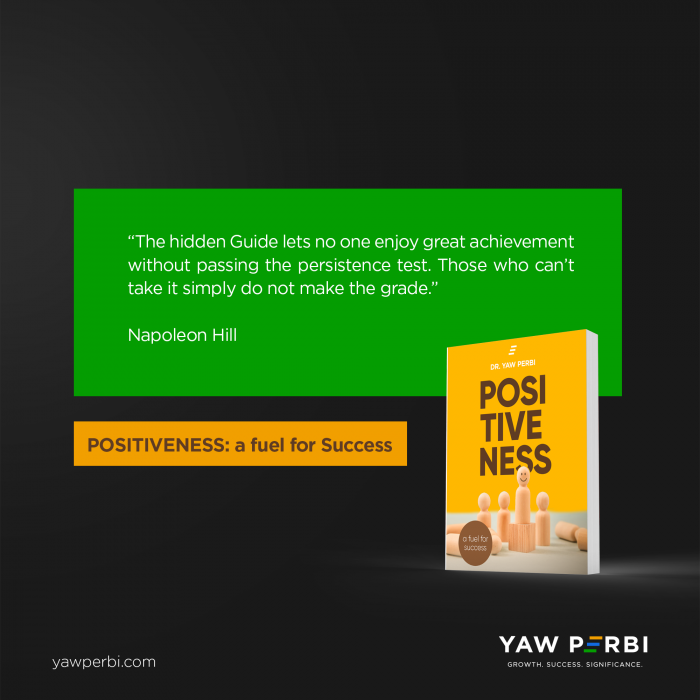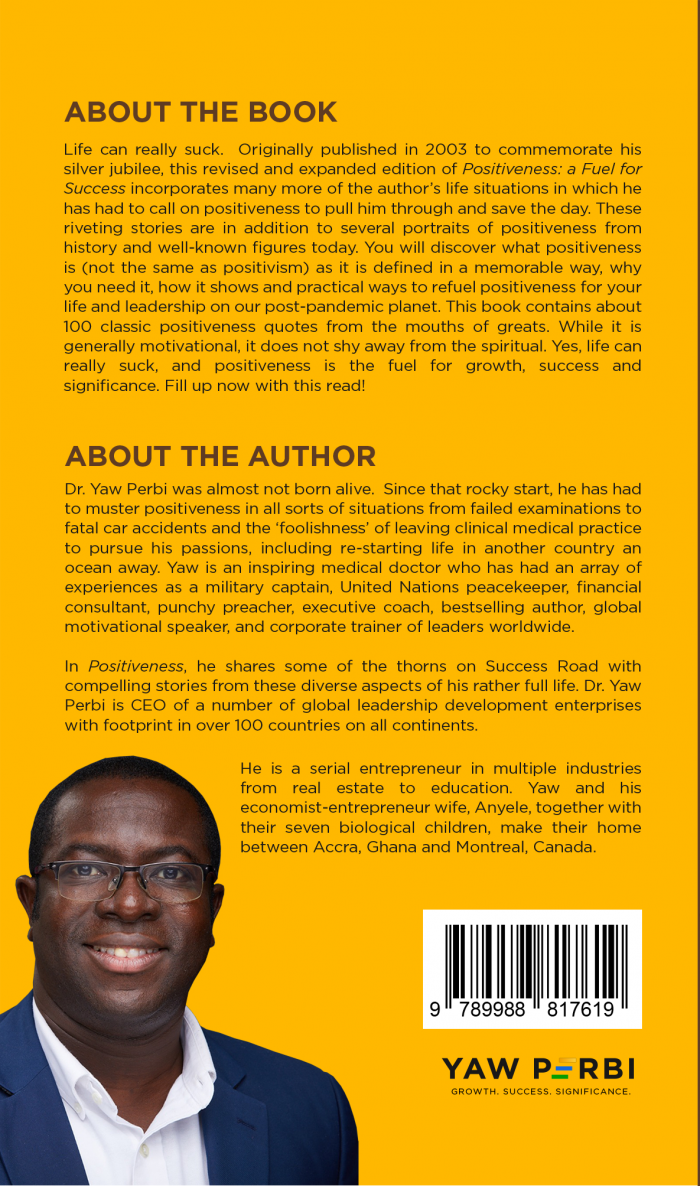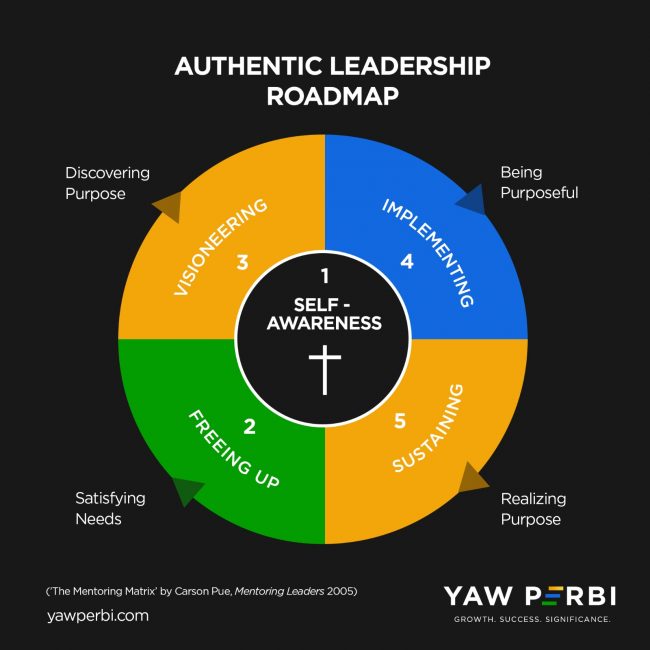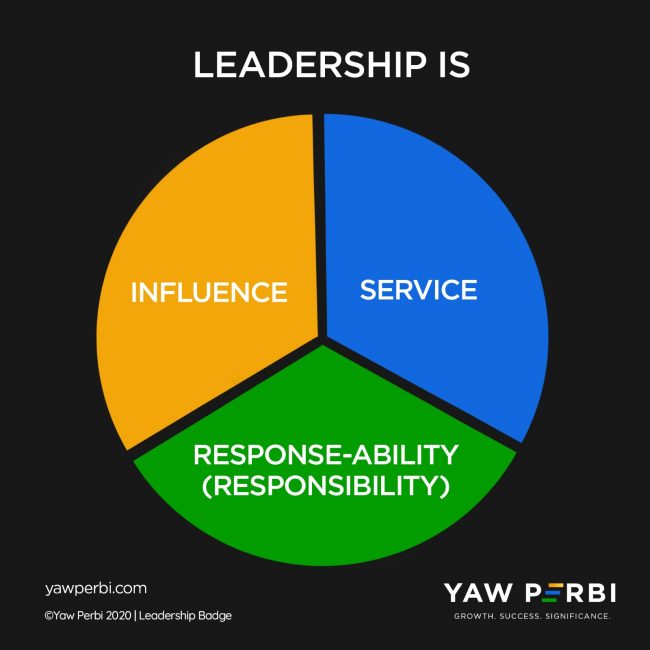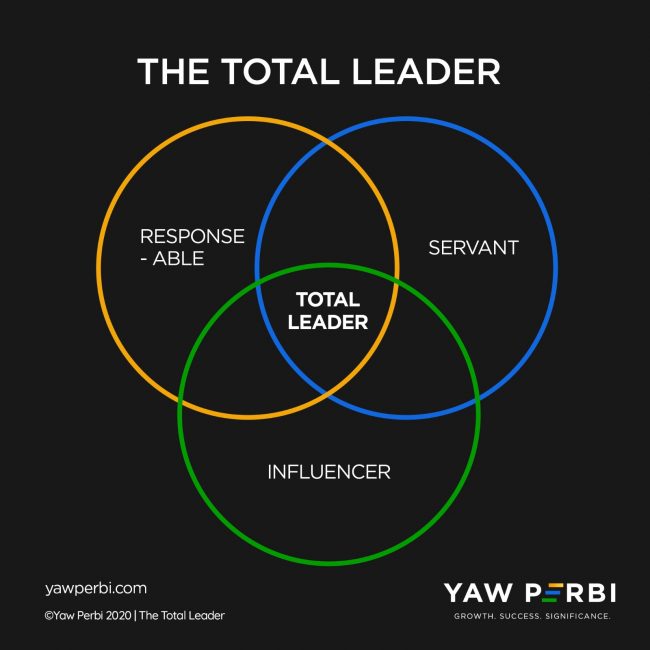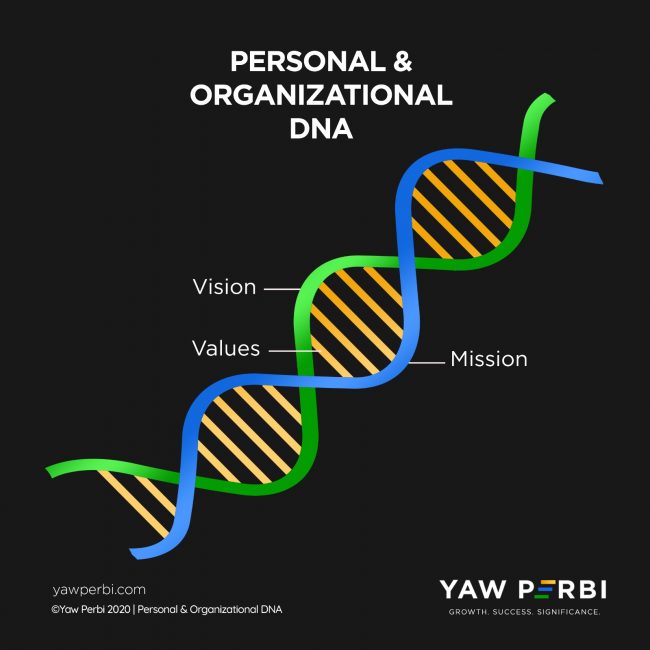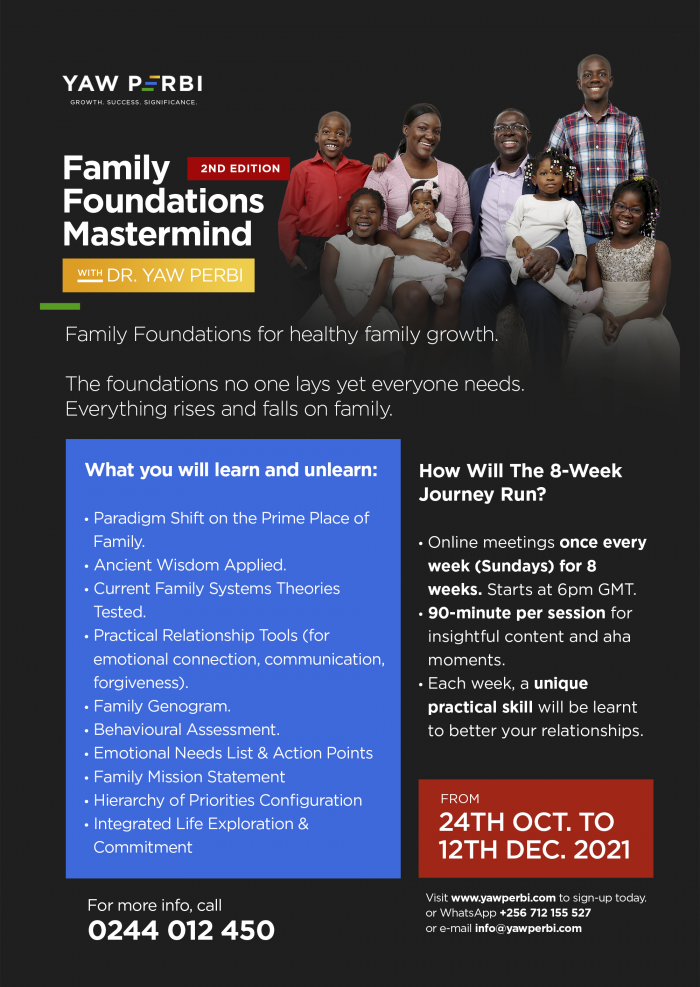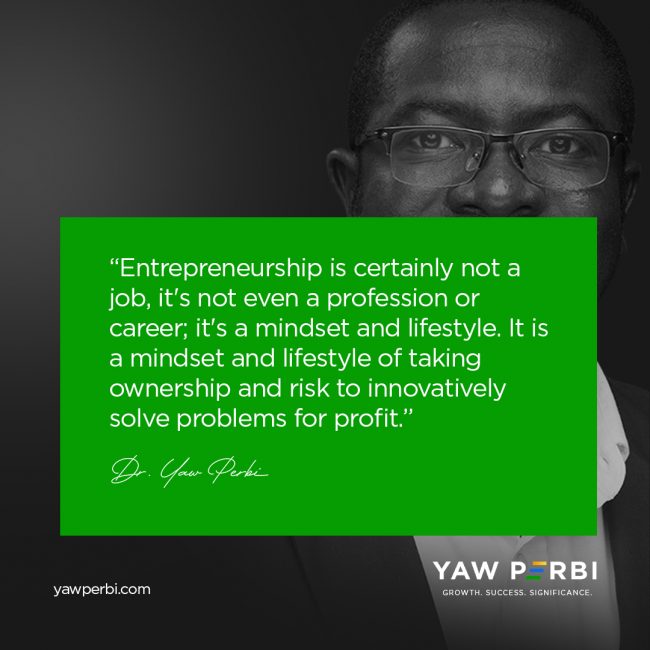
‘I DO’ or ‘NO CLUE’?
Happy Saint Valentine’s Day! I think it makes a difference when you prefix the ‘saint’ before ‘Valentine’s Day’ because unfortunately a lot of unholy things happen on Valentine’s day but it’s a day to celebrate a saint who out of love, gave of himself for others. That’s what the essence of love is, it’s not so much what we can get but what we can give.
This is why I love the commonest scripture which numerous people who are not even Christ-followers know that by heart (John 3:16): “ For God so loved the world that He gave…” Love is three things (3As): Love is an affect (emotion), an attitude, and an action. If you would take another look at the most famous passage in all the world about love, 1 Corinthians 13, you would see love showing up mainly as attitude and action. There are a few affects sprinkled here and there but mainly attitude and action. That’s what love is–not just an affect and an attitude but love is action, so love gives.
On this particular Valentine’s day, I want to send a shout out to the love of my life, Naa Anyele Perbi (nee Ampa-Sowa). We’ve been married for over 15 years now and one of the things that has saved and sweetened our marriage is searching for and satisfying each other’s emotional needs, something we learned from marriage mentors of ours in Montreal, Canada. Gerry and Kathy Kraemer do a marriage workshop and illustrate this beautifully. The point is that each of us–depending on where and how we were born and raised, our make-up/wiring, personality, life’s critical incidents etc.–receive love differently. This is not just the general and popular ‘five love languages’, no! This is way beyond that. This is deeper than that. Based on our life stories, we each have unique emotional needs.
The Kraemers love to tell the emotional needs tale this way: On the day we get married you we exchange vows and say, “I do.” Gerry and Kathy half-joking assert that we probably should rather say, “No clue!” instead of “I do!” for indeed, we have no clue what we are getting into, no matter how much in love we are and how much we think we know of ourselves and of the other. They actually project their 1970s wedding picture and ‘photoshop’ in an ‘invisible’ suitcase by each of them, symbolizing the baggage each of us comes into a marriage relationship with!
And this is how they illustrate it: Gerry is blindfolded by his wife, who then holds a cut-out heart, a big heart, right in front of her. Now, Gerry holding a bow and arrow (the plastic kind with a sucker at the end) then tries to hit the target, the heart of his dear Kathy, going boom, boom boom!!!! And guess what? He misses Kathy’s heart every time. Until eventually he allows her to remove the blindfold so he can now see exactly where her heart is and can strike it point blank or from afar, any and every time.
The point is this: there are a lot of books and audiovisuals out there that talk about love and romance in such generic terms such as ladies love flowers and guys like sex. Don’t buy this stuff! There are guys who love flowers and gals who have a bigger desire and capacity for sex than most men you know! There is actual work to do in specifically finding out through conversation and some tools (those who take our YAW PERBI Family Foundations Mastermind actually get to go through this) to know these things. Basically, you can find out from conservations with or without expert help. What makes your spouse feel fully alive? In other words, what gives oxygen to their souls? When you find that out (when your spouse let’s you in on the master key(s)–and by the way you don’t have to understand it!, you don’t even have to like it–just do it! When your spouse says, “I am XYZ and this is how l love to be loved, would you love me this way?” I hope your answer would be yes!
Today being St. Valentine’s Day, a lot of people are going to give gifts that they would have loved to receive; not gifts people would loved to get, necessarily. That’s how humans behave: we tend to give what we would like ourselves or what we think is good. But if we would take the time to hear the heart of whoever we’re trying to love, they would tell us, they would give us a clue what makes them feel loved or what gives oxygen to their souls.
“I am Yaw, this is how I love to be loved… (Errrm… I won’t tell you! Only Anyele knows that!) …Would you love me this way?” Love somebody the way they want to be loved, the way they feel loved this Valentine’s Day; not the way we want to love them. Have a Happy Valentine‘s Day!!! and a great month celebrating love, true and love, lasting love, pure love, for God is love. Whatever you do today, may be it be saintly!

4 Easy Steps To Choosing The Right Coach
In the article 5 Signs You Need a coach ASAP, we defined coaching as a process of moving someone from where they are to where they want to be, through encouragement, guidance and honest feedback. The coach uses guiding questions to help the coachee set goals and take the necessary steps to achieve them.
Step 1: Know what you want from the coach. What aspects of your life need attention and what outcome do you seek.
Step 2: Verify the training and certification credentials of the coach. Are they an authority in their area? What are their experience and achievements in their personal lives?
Step 3: Schedule chemistry or complimentary first session. This will assess whether the coach is a fit for what you’re looking for. In this session ask them:
- What tools they will use to help you achieve your goals?
- How much do they charge for the coaching sessions?
- Who have they coached and can you access their testimonials?
- What are the other terms of the coaching agreement!?
Step 4: Observe these four qualities in your interactions with the coach in the initial sessions.
- Do they ask questions or instruct you? A professional coach asks good questions so you can arrive at solutions not telling you what to do.
- Do they listen to you? Good coaches listen to you without interrupting.
- Are they confidential? Do they share the names and personal stories of their clients with you? If they do, then you’ll be their topic with another client.
- Do they keep time and stick to their commitments to you?
Choosing the right coach for your personality and needs is like finding the perfect house to rent or a car to buy. It involves a bit of searching and recommendations. But when you find the right one, your personal and professional life will be totally transformed.

5 Signs You Need A Life coach ASAP| 5 Benefits of Getting a Coach
High achievers appreciate the role of a coach for high performance in their personal and professional journey. In a highly competitive environment that puts a high demand on your time, you need someone who can bring the best out of you. In fact, with the right coach, you can accomplish in one year what you have struggled to achieve in the last 10 years.
Coaching is a process of moving someone from where they are to where they want to be, through encouragement, guidance and honest feedback. The coach uses guiding questions to help the coachee set goals and take the necessary steps to achieve them.
Tom Landry, a football coach, once said, “A coach is someone who tells you what you don’t want to hear, who has you see what you don’t want to see, so you can be who you have always known you could be.”
Let’s use the Word COACH as an Acronym for the benefits of coaching: Clarity, Outcome, Accountability, Challenge and Habits
Here are the 5 signs you need a coach and the 5 benefits of coaching.
Sign #1: You Lack Clarity about Your Identity, Purpose, Priorities, Values, Talents, Gifts and Personality Style
CLARITY
A coach uses different tools to help you gain clarity about who you are, why you are here on earth, your life priorities and what you stand for. They introduce you to assessments like the DISC to help you understand and apply your personality type. Through coaching, you become more self-aware.
Sign #2: You Rarely Set SMARTER Goals to achieve Your Desired Outcome
OUTCOME
A coach helps you to set SMARTER (Specific, Measurable, Achievable, Relevant, Time-bound, Evaluated and Rewarded) goals and provides tips and tools to achieve them. He or she helps you write a vision statement in the aspects you desire to see a specific outcome.
Sign #3: You’re Answerable To No One For Achieving Your Goals
ACCOUNTABILITY
A coach helps you stick to your commitments, follows you up on your goals and gives honest feedback on your progress.
For instance, if your goal is to jog three times a week for 30 minutes each time for physical fitness, there may be times when you fall behind on this goal. A coach will hold you accountable and keep you focused on the benefits you’ll enjoy once the goal is achieved.
Sign #4: You Feel Bored, Stagnant and Underutilized
CHALLENGE
A coach challenges you to stretch and step out of your comfort zone, pursue your dreams and God’s will for your life. Because they believe in your potential to become better, they challenge you to grow past your limiting beliefs and fears.
Sign #5: You Struggle To Develop or Ditch Certain Habits
HABITS
A coach helps you cut off habits that waste your time and hinder your progress. He/She helps you create a new system of doing things and set proper boundaries that make you more productive.
I hope you now appreciate the fact that you can’t progress past a certain level of growth and success without the help of a caring and committed coach.
Check out the 5 Steps to choosing the right coach.
And if you’re eager to achieve your goals, consider getting a coach today. Contact us, the YAW PERBI Team, via info@yawperbi.com.
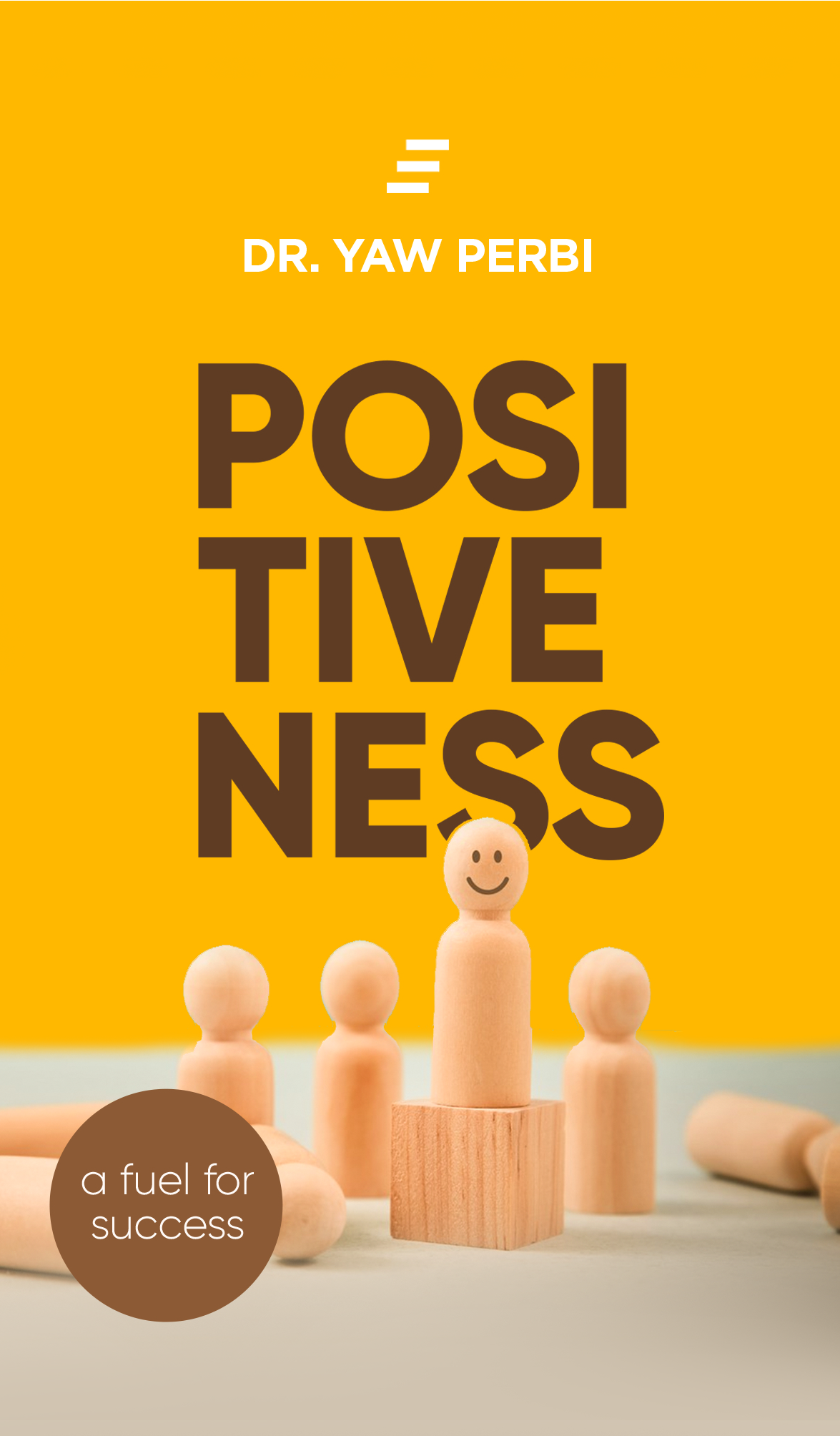
PANDEMIC OR NO PANDEMIC, POSITIVENESS IS STILL A FUEL FOR SUCCESS
The following is a snap peak of the preface to the third edition of Dr. Yaw Perbi’s third book, ‘Positiveness: a fuel for success’, first published in 2003 to commemorate his silver jubilee.
It took a global pandemic to make this third edition of Positiveness: A Fuel for Success, possible. I have been trying to republish this book for nearly a decade now. The revised manuscript was done in 2012, and I had nearly completed the back-and-forth with a publishing company. All was ready to go, or so I thought. Then life happened and I put this on the backburner. Until now. It took the lockdowns of the Coronavirus pandemic of 2020 to get this going again.
I have changed a lot since I turned 25 and first launched this book and so have many things too. We didn’t even have smartphones back then, and the internet was still a novelty. But some things have remained the same. After thousands of copies sold and many countries reached, “through all the changing scenes of life, in trouble and joy,” what hasn’t changed is the fact that positiveness is still fuel for success.
In the past two decades, I have lived and worked for a year or more in three countries on two continents. In doing so, I have needed a whole lot of positiveness, especially in those times when I was geographically separated from my family. I have formally had various occupations and preoccupations ranging from being a medical doctor in Ghana, a military captain with the United Nations in Cote d’Ivoire, a leadership consultant and speaker around the world, pastor of a Chinese congregation in the French city of Montreal, a financial security advisor and investment consultant, to being president of a couple of Canadian and global charities. Positiveness is still fuel for success no matter the field of endeavour.
You see, this book was only my third book and, back in 2003, I wrote and self-published it with a white cover and silver inscriptions to celebrate my twenty-fifth birthday (silver jubilee). At the time, I was a struggling medical student in Ghana attempting to do ‘what Napoleon couldn’t do’. I was trying to straddle the world of medicine and human development. In May 2003, together with a group of friends, while still in med school, I founded The HuD Group to inspire and empower young people to reach their full potential. Now I am a full-fledged medical doctor who has hung up his stethoscope— after four years of clinical practice—to focus on human development, especially holistic leadership development, because I sincerely believe, like my mentor John C. Maxwell, that “everything rises and falls on leadership.”
The HuD Group began in Ghana but, at the time of writing this, I am feverishly coordinating our global operations in two dozen countries on all continents of the world and currently domiciled in Montreal, Canada. If I thought I needed a daily prescription of positiveness back in 2003, then I might need a thrice daily prescription now. The two-year battle with the Canada Revenue Agency alone to get charitable status for The HuD Group warrants a book on its own. I’ll save that for another day, but it took positiveness to fuel my success.
When I was much younger and naïve, I dreamed of working with the United Nations. And unlike many for whom that is still a dream, I achieved it. I did that, for a year, in La Cote d’Ivoire. Even while already enjoying that success, I still needed positiveness as fuel when I got car-wrecked on July 21, 2008 and lost two of the military colleagues I was travelling with. It was positiveness that got me back on the road to recovery. My commanding officer, out of rare soldier-sympathy, wanted me to return home (to Accra, Ghana) and recuperate but cheers to positiveness, I was convinced to stay put and serve with grace. I prevailed. Positiveness prevailed.
So yes, life has changed—a whole lot— and so have I since 2003. Now married to my dear wife, Anyele, and a father to seven amazing children, I certainly have a broader and deeper perspective on life today. But if anything, these changes have only affirmed and confirmed the principles that were penned in this book nearly two decades ago. Positiveness is fuel for growth, success, and significance in any and every endeavour, and at whatever age and stage in life, that hasn’t changed.

THE PRESENCE ~ Part 3 (of 3)
Do you know the story about the wealthy arts collector and his son? Eventually when both died the man willed all of his wealth—unbeknownst to the other wealthy art connoisseurs and museums who were eyeing his stuff—to whoever bought the ‘unimpressive’ but deeply precious painting of his son. Usually, this story is told in an evangelistic sense for people to consider Jesus Christ as their Saviour and Lord—“whoever takes the Son, gets it all”—yet this is the same Son who said, “But very truly I tell you, it is for your good that I am going away. Unless I go away, the Advocate [THE PRESENCE] will not come to you; but if I go, I will send him to you” (John 16:7). Friend, whoever takes the Spirit, THE PRESENCE, into 2022, gets it all.
THE PAINTING is like THE PRESENCE
Everything you need is in THE PRESENCE; just like every painting the connoisseurs wanted was in that one painting of the son. Moses knew, that everything he and the Israelites would ever need was in THE PRESENCE. And so when God said “I’m not going with you guys any longer,” Moses retorted without skipping a beat, “then we’re not going!”
1Then the Lord said to Moses, “Leave this place, you and the people you brought up out of Egypt, and go up to the land I promised on oath to Abraham, Isaac and Jacob, saying, ‘I will give it to your descendants.’ 2I will send an angel before you and drive out the Canaanites, Amorites, Hittites, Perizzites, Hivites and Jebusites. 3Go up to the land flowing with milk and honey. But I will not go with you, because you are a stiff-necked people and I might destroy you on the way.” (Exodus 3)
As I said in the beginning, many people wouldn’t mind such a deal at all, just like heaven without God! If getting to the Promised Land was guaranteed, with an angel to boot, what’s the problem if it’s ‘only that’ God isn’t coming along for the ride? At the various Watch Night/Cross Over services around the world, I dare say that for the majority of people as long as were assured of the promises of God, angelic guidance and protection, prosperity of what to eat and wear and spend (milk and honey) in 2022, who cares about THE PRESENCE?!
12Moses said to the Lord, “You have been telling me, ‘Lead these people,’ but you have not let me know whom you will send with me. You have said, ‘I know you by name and you have found favor with me.’ 13If you are pleased with me, teach me your ways so I may know you and continue to find favor with you. Remember that this nation is your people.” 14The Lord replied, “My Presence will go with you, and I will give you rest.”
15 Then Moses said to him, “If your Presence does not go with us, do not send us up from here. 16 How will anyone know that you are pleased with me and with your people unless you go with us? What else will distinguish me and your people from all the other people on the face of the earth?”
The company you need is in THE PRESENCE, favour is in THE PRESENCE, pleasure is in THE PRESENCE, rest is in THE PRESENCE, distinction is in THE PRESENCE. We’ve all been raised to think how sad it was that Moses never entered the Promised Land. Are you sure? What if I told you he did? What if the Promised Land is God Himself? I’ll leave you to wrestle with that for a bit.
SO WHAT? FOLLOW THE CLOUD
I hope I’ve been able to convince you that EVERYTHING you need for 2022 is in THE PRESENCE of the LORD; all you’ll EVER WANT is in THE PRESENCE. Do you then now have the faith to pray, “Dear God, all I need for the New Year is YOU! so All I want for New Year, is YOU!”
Remember, s(h)e who takes the Spirit, THE PRESENCE, gets everything! Lord, LEAD! LORD, your presence or nothing! Will you follow the crowd or the CLOUD? Using ‘CLOUD’ as an a acronym, here’s how to practicalize this message and maximize THE PRESENCE in 2022: Cultivate, (Be) Led, Obey, Unwind, Discern.
1. CULTIVATE— Cultivate THE PRESENCE
This year, learn to stop at set times (also spontaneously) during the dam, calm your spirit (breathe in and out deeply) and centre yourself by being conscious of your breathing and God’s presence, saying, for example (with breathing in), “Lord, “I breathe in your Spirit…” and as you exhale, “I breathe out my stress or anger.”
Incidentally, on the very 31st January, prior to traveling to preach this message in the evening, my wife and I were going to look at a piece of property and burst a tyre. She had to continue alone in an Uber. Initially I was getting upset, wondering whether this was an attack on 31st or whatever… Then the Spirit reminded me of this very message. I stopped, calmed down, centred myself, cultivating THE PRESENCE.
2. LED— Be Led by the PRESENCE
“For those who are led by the Spirit of God are children of God…” (Rom 8:14). Let the Lord lead in 2022. Listen & be led.
3. OBEY—Obey the promptings of THE PRESENCE
What more is there to say?
4. UNWIND—Relax, Lounge, Chill and build intimacy with God
Mark Thibodeaux describes four stages of praying, or relating to THE PRESENCE. By unwind I mean the fourth; not the first three.
o Talking at God—This is simply parroting prayers, whether recited ones like “Bless me, Lord, for what we’re about to receive we thank thee O Lord” or the kind of mindless speaking in tongues
o Talking to God—We become more comfortable finding our own words to speak to God, rather than readymade prayers but still “give me, give me, give me more, Lord.”
o Listening to God—This is when we begin to enjoy a two-way relationship with him.
o Being with God—A final stage is where “finally, we simply enjoy being in the presence of God—who loves us. This is far more important than any particular activity we might do with Him [or for Him]. His presence makes all of life fulfilling.”
5. DISCERN—Scripture says we should not be foolish and act thoughtlessly, but understand what the Lord wants us to do, understudy God’s moves and waves and will. Moses said, “show me your ways” as He asked for God’s presence and glory. My favourite definition of discernment is Ruth Haley Barton’s: “the capacity to recognize and respond to the presence and the activity of God—both in the ordinary moments and in the larger decisions of our lives.”
CONCLUSION
Let’s thank God for every time you experienced THE PRESENCE in 2021. Confess your eagerness to have stuff and success in 2022 but not necessarily HIM! Let’s pray for a life that follows the CLOUD in 2022. If you’re serious about THE PRESENCE, tell God, in the words of Don Moen’s classic:
If Your presence doesn’t go with us
Lord we don’t want to leave this place
Lord we need You near
As we go from here
To lead us by Your love and grace
May Your presence fill us every day
May Your Spirit lead the way
Lord to You we call
Let Your glory fall
And may Your presence go with us
If we have found favor in Your sight
Show us Your ways O Lord
Cause we want to know You
And live in Your light
For all of our days
Show us Your ways
We have our hopes
And we have our dreams
But we cannot go
Where You will not lead
Lord to You we call
Let Your glory fall
And may Your presence go with us
Rest assured, we have a guaranteed general, guide, guard, giver and glory for 2022, the “Captain of Israel’s Host,” THE PRESENCE.

THE PRESENCE ~ Part 1 (of 3)
As I prayerfully pondered how best to enter 2022 personally as well as what to share with a church plant on the Akuapem mountains (in the Eastern Region of Ghana) that had invited me as guest preacher for their Watch Night service, THE PRESENCE became overwhelming clear.
WHAT DO YOU WANT FOR 2022?
Take a pause and sincerely answer the question: What do I want for 2022? How about THE PRESENCE as a present? Yes, God is everywhere (omnipresent) so why does He say where two or three are gathered in His name He is present, among them? God can choose to concentrate His presence in a person or place, and that is what I mean by THE PRESENCE. My aim is to show that everything you need for 2022 is in THE PRESENCE of the LORD; all you’ll ever want is in THE PRESENCE. At the end of this, my prayer is that like the Mariah Carey song, “All I want for Christmas is you,” you’ll leave here saying, “Dear God, all I need for the New Year is YOU!” so “All I want for the New Year, is YOU!”
HEAVEN CAN BE HELL
Four years ago, when I was still president of ISMCanada, I led a team to organize our biennial staff conference for most of our 100 staff from coast to coast to come to McGill University in Montreal, on the east coast of Canada. One of the devotional speakers I arranged to exhort the conference attendees was a young pastor (he’s a white African from Zimbabwe) from the Peoples Church of Montreal. Pastor Chris asked a question that I would like to repeat: HOW MANY OF YOU WOULD STILL LOVE TO BE IN HEAVEN EVEN IF GOD WASN’T THERE? My own response revealed my heart and I was shocked. I realized to my utter shock and shame, I didn’t really mind being in Heaven—the golden streets, tree of life, worship music, peace, no more sickness, sweat or tears…—even if God was absent.
But really, WHAT IS HEAVEN WITHOUT GOD? Heaven without God is hell! Samuel Rutherford put it this way, “O my Lord Jesus Christ, if I could be in heaven without thee, it would be a hell; and if I could be in hell, and have thee still, it would be a heaven to me, for thou art all the heaven I want.” Teresa of Avila said, “Wherever God is, there is heaven.” And for John Milton, “Thy presence makes our paradise, and where thou art is heaven.” Simply put, God’s presence is paradise.
Now, let me ask you: WOULD STILL LOVE TO ENTER 2022 EVEN IF GOD WASN’T THERE? 2022 without God is hell. Yet even Covid in 2022 with God is heaven. Everything you need is in the Presence of Yahweh; is it protection, provision, guidance, favour, promotion, strength…? It’s in all in THE PRESENCE. For many of us, we don’t mind having this stuff without God coming along! We want his hand but not his face; we want his stuff but not him. That is a tragedy of our times; an error!
SPIRIT-SATURATED SIMEON
This last Christmas season, I was really challenged by the Spirit-led life of Simeon in Luke 2. He was a righteous and devout man in Jerusalem who Joseph and Mary met when the time came for the purification rites required by the Law of Moses, and they took Jesus to Jerusalem to present him to the Lord. Interestingly, my main text for this message, Exodus 13, begins by explaining that what was written in the Law of the Lord—“Every firstborn male is to be consecrated to the Lord”—was part of the Exodus story as God killed all the firstborns of Egypt and spared the Israelites’.
Simeon was no special person per se—not a priest, prophet, pharisee, politician—just an ordinary guy who thought right, acted right, was in right and intimate relationship with the LORD and devoted to Him. He was waiting for the promised Jewish Messiah (“the consolation of Israel,” they would say) and the Holy Spirit was on him [THE PRESENCE]. It had been revealed to him by the Holy Spirit that he would not die before he had seen the Lord’s Messiah. Someone reading this needs revelation in 2022; it’s in THE PRESENCE.
Just check out at the intimacy in THE PRESENCE—such a deep thing that thousands of generations had waited for in faith, and God chooses to promise this sight to simple Simeon! It reminds me of Abraham’s intimacy with the LORD to the extent that God said, before he would rain judgment on Sodom & Gomorrah, “shall I hide what I’m about to do from Abraham].
Moved by the Spirit [THE PRESENCE compels, propels], he went into the temple courts right when the parents brought in the child Jesus to do for him what the custom of the Law required. Indeed, the steps of the righteous are ordered by THE PRESENCE]. Simeon took him in his arms [may you too take hold of and take delivery of God’s promises in 2022 by THE PRESENCE] and praised God [there is praise in THE PRESENCE], saying some amazing things which made Mary and Joseph “marvel” (v. 33), including prophesying some incredible things like the crucifixion, all of which could only have been revelation. Such is the life of an individual in THE PRESENCE.
In Part 2, I share about the remarkable Israelites-in-the-desert example of THE PRESENCE, so well-summarized in the following famous two-stanza Wesleyan hymn:
Captain of Israel’s host, and Guide
Of all who seek the land above,
Beneath Thy shadow we abide,
The cloud of Thy protecting love;
Our strength, Thy grace, our rule, Thy Word;
Our end, the glory of the Lord.
By Thine unerring Spirit led,
We shall not in the desert stray
We shall not full direction need
Nor miss our providential way;
As far from danger as from fear,
While Love, almighty Love, is near.
Find Part 2 here.
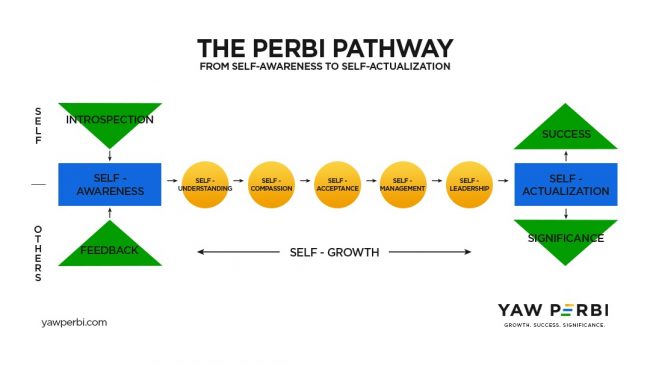
Is ‘Self-Leadership’ Really a Thing?
When the CEO of TNYOU, short for The New YOU, a leading health and wellness movement asked me to speak to a group of their Queens (members) on ‘self leadership’ it felt odd on three levels. I still showed up anyway, grateful for the invite, because Sena told me there was going to be a lot of women there so how could I turn down the invitation? I am very heterosexual!
Firstly, it felt odd because not everyone believes in the concept of ‘self leadership.’ During my graduate studies in leadership I came across leadership authorities in academia like Northouse who believe ‘self leadership’ is an oxymoron because leadership by definition per se is about other people, not one’s person.
The second reason it felt odd was that it seemed to me I was preaching to the choir. These were all women who had taken charge of their lives, self-leadership, to get their health and happiness on track. What more was there to tell them?
My third and final reason was personal: I suspect Sena Yeboah had asked me to speak on self-leadership because not only am I a leadership authority (I’m actually even undergoing doctoral studies in global leadership at the moment) but I’ve also been big on self leadership in my personal life for years and very successful in most areas (discipline of staying in medical school or to author and publish 20 books or choosing to abstain from sex before and outside of marriage or family planning for seven children etc.). The irony is that the one area I have failed miserably at in exhibiting strong self-leadership has been my personal health, particularly since the pandemic. I was very active before Covid-19 hit, sometimes doing nearly 70 flights per year and all but now both the pandemic viral curve and the curve of my abdomen had risen in tandem. What an embarrassment to stand before women who had exhibited self-leadership to look trim and prim!
I’m glad that in the spirit of authentic leadership I confessed my sin and shared my repentance story that over the previous four weeks I had now taken self-leadership regarding my health and had been working with a physical trainer/coach actually recommended to me by Sena since there’s no TNYOUMen, yet.
SO WHAT IS SELF-LEADERSHIP?
As far as I know, Charles Manz was the first to use the term ‘Self-leadership’ way back in 1983 and defined it as “a comprehensive self-influence perspective that concerns leading oneself.” The father of modern management, Peter Drucker, wades in (2010) to say that being a self-leader is to serve as chief, captain, or CEO of one’s own life. Brian Tracy talks about setting goals and taking full responsibility for that goal. The concept of self-leadership, also known as personal mastery, can be found in the writings of philosophers and poets, both Eastern and Western:
“Mastering others is strength. Mastering yourself is true power.” – Lao Tzu (born 571 BC)
“I am the master of my fate, I am the captain of my soul.” – William Ernest Henley (1849–1903)
HOW SELF-LEADERSHIP CAN BE EXPLAINED
How differently would you live your life if you saw yourself as a company and run your life that way—Me Inc.? What are some of the things your company/organizational leaders do to make it successful? A leader is a response-able PERSON who serves and influences PEOPLE to achieve a shared, noble PURPOSE. Person-People-Purpose. Because of middle P, there is a school of thought that there is nothing like self-leadership, an oxymoron, but I beg to differ: If leadership is about responsibility, serving and influencing PEOPLE, then how about starting with the FIRST PERSON, which is yourself/myself?
You should know by now that the hardest person to lead is yourself/myself! Self-leadership then is being response-able, serving and influencing oneself (one’s PERSON) to achieve a noble purpose. This purpose could be an overall life purpose or in a specific area of your life: professional, financial, health/wellness, intellectual/academic, social/relationships, spiritual. Self-leadership is to:
*Be response-able for your life. Take charge/you are in-charge. I cannot keep letting my body do whatever it wants—from my mouth to the rod in between my legs.
*Influence yourself. Influence your thinking by what you choose to read or watch, including on social media. Recently I decided to influence myself towards finishing up a book and sending it off to the publishers by promising myself my favourite Chinese food at my favourite Chinese restaurant in Accra on the day I meet that goal!
*Service yourself. Everyone needs a daily growth time; everyone, everyday. Serving yourself may sound selfish but do not confuse self-care with selfish. Even to obey the great commandant to “love your neighbor as yourself,” you can only love a neighbour to the extent that you love yourself. A classic illustration of this truism might be how on an airline the safety instruction is that in the event of a loss in cabin pressure, when the oxygen masks drop down put one on your own face first before attempting to help any others. It might seem very noble to try and save that little child next to you or the old lady already collapsing across the aisle but without taking care of you first, we might end up with two casualties instead of one: you the attempted helper and the one you were attempting to save.
TEAMS, DNA & EVERYTHING LEADERSHIP
Take a good look at every responsibility of company leadership and find an application or parallel with your own life. One of your first acts of leadership is to recruit your leadership team. Gather the right community of people around you. Even better still have TEAMS—Together Everyone Achieves Most Success. You need mentors above (coaches, teachers, counsellors, spiritual directors etc.), mates at par and mentees who look up to you to form a stable tripod. One of my friends who works with a huge European bank has actually set up a personal board of directors he meets with quarterly–and it’s working wonders for him as we meet with him quarterly (I’m on this board). At least have an accountability partner of Me Inc.
As an executive coach, I still haven’t gotten over the shock every time I meet with a top leader of a company with a compelling mission statement yet this leader hasn’t clearly spelt out and written down their own vision, mission and values! Come on! Take self-leadership now–spend some quality time (even go on a retreat) to determine your life’s vision, mission, values and some goals and strategies towards that end. That is leadership!
SELF-LEADERSHIP NOT THE SAME AS SELF-MANAGEMENT
Leadership and management aren’t one and the same. It stands to reason then that self-leadership should be distinguished from self-management (as seen in the Perbi Pathway from Self-Awareness to Self-Actualization above). While all the differences isn’t the focus of this article, suffice it to say that self-management is doing the right things for your flourishing while self-leadership is determining what the right things are in the first place. The difference between leadership and management is starkest when once needs to make a major life change. Self-leadership is able to chart and change course; self-management is able to stay the course (consistency).
Self-management would be the planning, budgeting, organizing and staffing, monitoring results, coordination… everything systems and processes to create a stable, productive environment with consistent life results. Self-leadership, on the other hand, would be building a strong personal foundation, defining DNA (vision, mission, values), mapping strategy, inspiring commitment, equipping others for the journey, leading the way… everything that creates constructive change for definitive and (often) different results.
IT IS A THING!
Self-leadership is a thing and we had better get on with it. Be response-able for you, influence and serve yourself towards personal success and societal significance. There is a company called Me Inc. [replace ‘me’ with your name, if you like]. How’s your company doing? How is your brand? For me, at the moment, it’s taking charge of my weight and wellness that will do it. What is it for you?
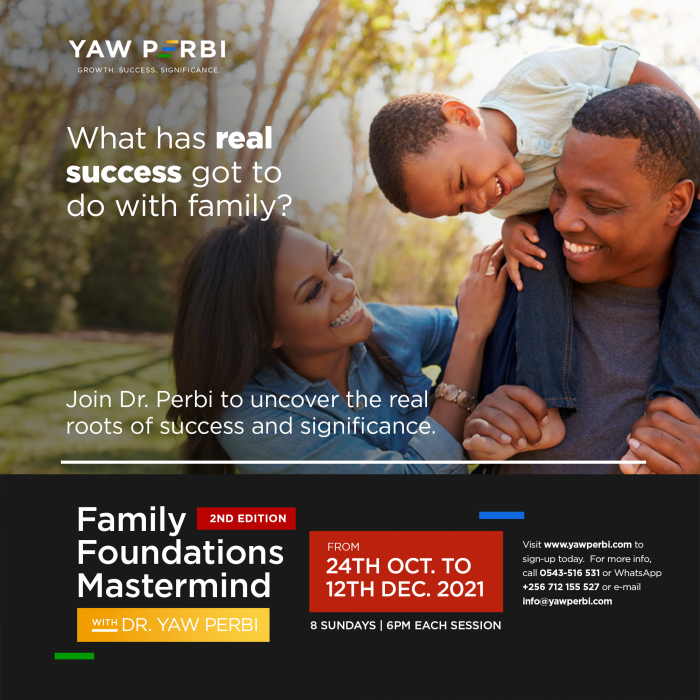
Family Foundations and Success: Will Your Anchor Hold?
We live in perilous times. Don’t you sometimes feel like the world is spinning out of control ? One of the most important things we must cherish and hold on to is family. Every single one of us has a family–no matter how (dys)functional and emotionally or geographically removed. The family is the fundamental unit of human existence. Nothing good happens on Earth if it is broken or destroyed. A society is only as good as the families that constitute it.
It is not only the concept of family that is important but also the actual living out of what family should be. Humans are described as social creatures. We make friends, live in communities, and connect with strangers based on common elements. Social media has recently emerged as a new way for people to connect with childhood peers, friends of friends, and even strangers. Nothing is more central to social life than the concept of family. Our families represent our earliest and, often, most enduring relationships.
Earlier this year, a Family Foundations Mastermind was held, with a sizeable number of couples (and some individuals) participating. All present could see that there are important things everyone should know, be, and do about the family yet no one had done! How can we expect family to be strong and stable if we ignore the fundamental roles of human existence? As a result, a popular request has been made for it to be repeated, even though we had planned this quarter to run a Financial Whizzdom Mastermind, which many were anticipating. We apologize for any inconvenience, but signing up for the upcoming Family Foundations Mastermind would never be a mistake.
With what is going on around us in this LGBTQI+ era, there is an urgent need to apply ancient wisdom and put current family systems theories to the test. The abiding questions in the 19th century hymn Priscilla Owens come to mind:
“Will your anchor hold in the storms of life, when the clouds unfold their wings of strife?When the strong tides lift, and the cables strain, will your anchor drift, or firm remain?”
We encourage everyone to participate in this mastermind as it will be both enjoyable and educational. We will explore:
Why a systematic study of family itself is important
The prime place of family (get ready for paradigm shifts!)
Ancient family wisdom (we’ll apply these)
Current family systems theories (we’ll test some)
Basic tools for emotional connection
Essential communication tools
The forgiveness exercise
Unique emotional needs and how to fulfill them
Mapping out your family genogram
Drawing up a family mission statement
Prioritization: Recognizing the place of work, family, friends, church/community, and other responsibilities that require your attention.
The idea of the integrated life over the notion of balance
And much more!
Note that this is not a masterclass but a mastermind. Inasmuch as there will be some core teaching, more central will be the concepts and tools that are put on the table for everyone to contribute their perspectives and experiences and practically learn together things together that no one could have taught us. Dr. Yaw Perbi is a guide by the side in masterminds rather than a sage on the stage, typical of a masterclass.
WHAT’S SUCCESS GOT TO DO WITH FAMILY?
Everything. As John C. Maxwell poignantly puts it, success is when the people who know you the best (family) love and respect you the most. Join this journey of growth to discover the real roots of success and significance. Family is essential. Whatever we see in society has a direct correlation with family. The family is the fundamental unit of society and humanity. We can discuss all seven sectors of life or spheres of influence, but only family actually produces human beings. Come learn how to be a better family member and how to be/do family better.
We are excited to have you. Register via this link as soon as possible. First come, first guaranteed.
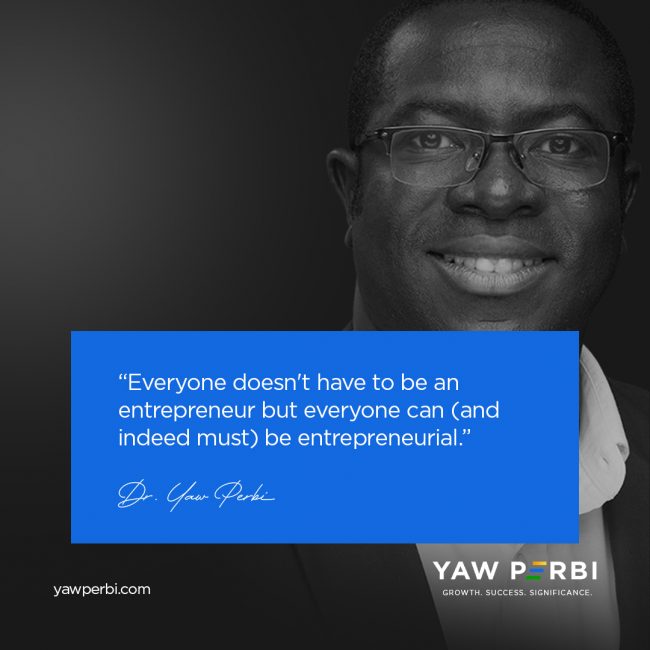
WANTED: Intrapreneurs!

A YP presentation to the two dozen Perbi Cubs staff gathered for orientation and training at a hotel in Accra.
Have you ever come across a ‘WANTED’ notice? Have you ever been on one? People can be wanted for good and bad reasons. Today, I’m here to share a WANTED notice with you on behalf of several business owners I get to coach and on my own behalf as a serial entrepreneur, WANTED: INTRAPRENEURS!
This was my passionate call during the final day of a whole week’s orientation and training of two dozen staff of Perbi Cubs Library Services, an evidence-based, cost-effective, literacy-promoting endeavour co-founded by my wife Anyele Perbi and I. This social enterprise has grown to serve 2,000 children in 200 schools and is set to scale some 10 times in the coming new school season (Deo volente) as a result of an innovative digital online library solution we’re partnering with various leading schools to roll out. The ‘problem’ of Covid-19 presented this entrepreneurial opportunity. I challenged our employees to become intrepreneurs. Here’s why.
WHAT’S IN A NAME?
First of all who is an entrepreneur? An entrepreneur is simply a person who sets up a business or businesses, taking on financial risks in the hope of profit. Investopedia offers an expanded definition of this as follows: “An entrepreneur is an individual who creates a new business, bearing most of the risks and enjoying most of the rewards. The process of setting up a business is known as entrepreneurship. The entrepreneur is commonly seen as an innovator, a source of new ideas, goods, services, and business/or procedures.” My definition is as simple as this: an entrepreneur is a problem-solver for profit.
Entrepreneurship is certainly not a job, it’s not even a profession or career; it’s a mindset and lifestyle. It is a mindset and lifestyle of taking ownership and risk to innovatively solve problems for profit. Hence employees who think and act like entrepreneurs are called intrapreneurs.
Intrapreneurs are employees who behave like Entrepreneurs. They have a work attitude and style that integrates response-ability, risk-taking, ownership, innovation (ROI). I like the acronym ROI because intrapreneurs really provide the best Return on Investment for their employers, business owners and indeed all stakeholders. The first written use of the term ‘intrapreneur’ appeared in a 1978 paper by Gifford and Elizabeth Pinchot entitled Intra-Corporate Entrepreneurship but prior to that the poster child for intrapreneurship had been Art Fry of the 3M company, four years before (I shall summarize his story shortly). The Pinchots’ first book, Intrapreneuring: Why You Don’t Have to Leave the Corporation to Become an Entrepreneur (1985), presented an expansion of the intrapreneurship concept where they defined intrapreneurs as “dreamers who do. Those who take responsibility for creating an innovation of any kind within an organization.”
Here’s a more elaborate definition of Intrapreneurs by Jordan Daykin in Forbes magazine: “A team of competitive, confident individuals who are committed to innovation, passionate about work and producing higher value for their employer [indeed, all stakeholders]. They will need to have an entrepreneurial spirit, be activators of ideas and have a willingness to take calculated risks. In return for their desire to help the growth of the company over financial reward, they will receive support and resources to help make their ideas a reality.”
ART FRY THE INTRAPRENEURSHIP POSTER CHILD
Today, it’s hard to avoid 3M products, especially those sticky notes of theirs. The company is worth $5 billion with a recurring spot on the enviable Fortune 500 list but what most people don’t know is that its success is largely one of the power of intrapreneurship. In 1968, a 3M engineering employee called Art Fry attended a seminar given by another 3M scientist, Spencer Silver, on a unique adhesive the latter had developed. This innovation had an unusual molecular structure that gave it the unique characteristic of being strong enough to cling to objects but weak enough to allow for only a temporary, non-damaging bond. It is reported that the scientific community didn’t take Silver seriously and he himself was still searching for a marketable use of his invention.
As the legend goes, Fry sang in his church choir on nights, and he used slips of paper to mark the pages of his workbook. When the book was opened, however, the makeshift bookmarks often moved around or fell out altogether defeating the whole point. On a Sunday in 1973, it occurred to him that Dr. Silver’s adhesive could be put to use in creating a better bookmark. If it could be coated on paper, Silver’s adhesive would hold a bookmark in place without damaging the page on which it was placed. Being the intrapreneur that he was, the next day, Fry requested a sample of the adhesive and began experimenting with it, coating only one edge of the paper so that the portion extending from a book would not be sticky. Fry experimented with writing notes to his boss, which broadened his original concept into the innovative Post-it Note product.
In 1978, 3M marketed the sticky notes under the name “Press ‘n Peel.” Two years later, after sampling in 11 states across the country, 3M officially released the first Post-it Notes. They were a massive success right away, resulting in over $2 million in sales after only a year on the marketplace.
IF YOU DO GOOD…
The company 3M isn’t the sole beneficiary of Fry’s intrapreneurship. Time and space wouldn’t allow me to list all the accolades and achievements of Art Fry as a result of his intrapreneurship. As the saying goes, “If you do good, you do it for yourself, really.” Things have a way of coming back to us, don’t they? What we sow, we reap. In return for their desire to help the growth of the company over financial reward, not only do entrepreneurs “receive support and resources to help make their ideas a reality” (as Daykin says above and the Fry-3M story shows), they also obtain skills for their own concurrent or future enterprises, they can expect that others would treat them and their businesses the way they treated another’s. Intrapreneurs are singled out for extraordinary opportunities (I’ve done that for several people) and can always come back for referrals and recommendations from their managers/leaders/business owners. Above all, if you do good, you do it not only for yourself but also for your God. Then His kingdom will come more fully on earth as it is in Heaven.
“THIS IS MY FATHER’S WORLD”
The Good Book exhorts all and sundry, “Whatever you do, work at it with all your heart, as working for the Lord, not for human masters.” That is more than stewardship, I think. That is ownership right there. Taking ownership of the work one does not because they are owner per se, but because their Father in Heaven owns all things. “For everything comes from him and exists by his power and is intended for his glory. All glory to him forever! Amen.”
Sadly, I’ve heard people in Ghana who should know better, questioning a diligent and passionate worker taking risk and ownership and being innovative, an intrapreneur, as follows: “Adɛn? Adwuma no ɛyɛ wo papa dea?” To wit, “Why this hard work? Is this enterprise/organization your father’s?” The answer is supposed to be an apparent “no” but what if everyone of us who calls God “Father” responds, “Ampa! ɛyɛ me papa dea!” Meaning, “Yes! Of course! It is my Father’s. This is my Father’s world.”
LET’S DO THIS!
I wish everyone was an entrepreneur like my wife and me since there are enough problems to be solved in our world and profit to be made as a reward. Besides, I encourage people to separate their profession from their business, meaning, the fact that they have some employment or career does not exclude them from owning a side business for multiple streams of income (as long as you’re doing excellently well in your regular job and not robbing Peter to pay Paul). But the reality is that not everyone will be a business owner. Indeed, everyone doesn’t have to be an entrepreneur but everyone can (and must) be entrepreneurial, especially as an intrapreneur.
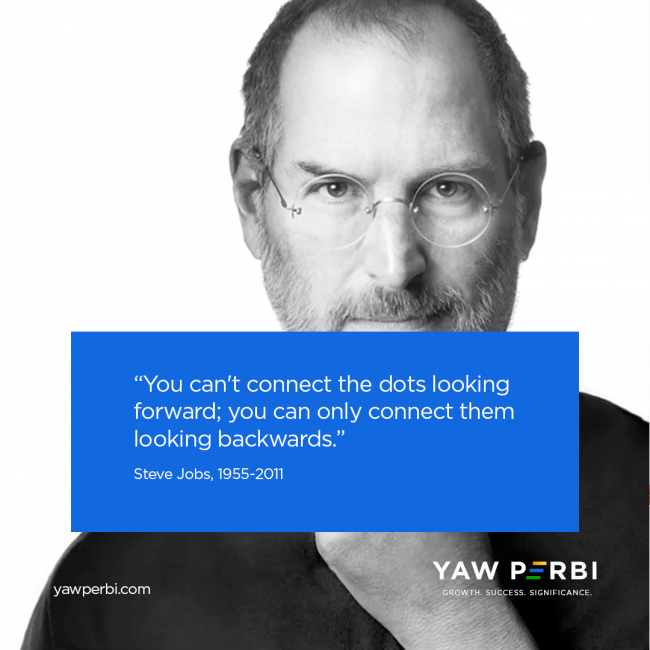
Life is lived forwards but understood backwards
Life is lived forwards but understood backwards. That sounds very much like one of those witty sayings from my bank of African proverbs but the person I read that from first was the Danish philosopher Søren Kierkegaard. In his own mother tongue “Livet skal forstaas baglaens, men leves forlaens,” translates into “Life can only be understood backwards; but it must be lived forwards.”
In a recent conversation with my brother and friend of nearly two decades, Rev. Albert Ocran, he prophetically said to me without butting an eyelid that when he looks at my entire life it can be distilled into one word: leadership, to which I replied with my head bopping like an agama lizard, “That is true, you are right!” (By the way I have given him the title, “Thought Distiller.” He’s doing a wonderful job distilling the life lessons of several leaders in society for the general public on his Springboard Road Show.) Albert is one of the few who ‘gets’ my life, probably because he is an ardent believer in something he himself calls “convergence.”
I have been accused by some of living a scattered life (“all over the place”) while others have expressed concern I might not make much of a dent in the universe (impact) because of how spread my life has been (and continues to be?). I have been a medical doctor, award-winning speaker, punching preacher, best-selling author, publisher, military officer, U.N. peacekeeper, cross-cultural pastor, serial entrepreneur from media to real estate to education, president & CEO, television presenter, financial advisor, investment consultant, founder of many things, corporate trainer, life and executive coach, inspirational teacher, lived in three countries over the last dozen years and served in 45 … So who are you, what are you? people wonder. Although I owe no one an explanation except the One who gave me life, permit me to share two pivotal paradigms, nay convictions, with you.
(1) META-PERFORMANCE–Milking Your Full Potential
First of all, there is the notion of meta-performance. Many of us never explore or exploit our full potential because we get stuck in being the best at something in comparison with others, rather than constantly exploring the question, “What am I capable of?” There is no reason to be stuck in a hospital because I was trained as a medic when I have the ability to author books as well, something the majority of my med school mates may not have the aptitude for. Shall I therefore not write because other doctors cannot? I resolved when I was but a youth, as entrenched it in my personal mission statement, to “die empty.” To die having utilized and exhausted every gift in me, but now I add, “within my God-given limits.” After all, like you I have only one life to live and have only 24 hours in each day. Besides, with a wife and seven children, family is a blessing which comes with its own limits as well.
Suffice it to say I encourage the youth in particular to spend their first 30-35 years at least, exploring and exploring and exploring until they finally hit oil. Don’t forget the parable of the talents: one was given five, another three, and a third servant, one, each according to their ability. Why should the chap with five compare himself with the person with one and underperform? As has been wisely said, the talents we have are God’s gift to us; what we do with them is our gift back to God. Meta-perform!
(2) CONVERGENCE–Connecting the Dots
But I digress, which is funny because the point I want to make next is about (a word that Albert loves): CONVERGENCE. We all must get to a point in our lives when we can look back and connect the dots, and see that all these seemingly scattered and unrelated aspects of our lives, including the lows and the pains, can all really come together to make one huge statement and result in an integrated life. The reason Kierkegaard’s words speak profoundly to me is that when I reflect on my seeming scatteredness, when I look backwards, I see that the many different-coloured strands have a common thread: leadership. That is why I doff my hat to Albert for being so spot on. I have not been called to be a medical doctor or military officer or media man or investment guru per se but a leader in every sphere I’ve been given talent and opportunity in. Is leadership a career? If it is then, then that’s mine. If it isn’t then I do not have a career.
The late Apple founder Steve Jobs put this Kierkegaard philosophy of looking backwards and Albert Ocran’s love of convergence into a very powerful statement: “Again, you can’t connect the dots looking forward; you can only connect them looking backwards. So you have to trust that the dots will somehow connect in your future. You have to trust in something—your gut, destiny, life, karma, whatever. This approach has never let me down, and it has made all the difference in my life.”
BACK TO THE FUTURE
This issue speaks to a powerful leadership practice we must all have: reflection. Reflection, really, is the rhythm of leadership. There is no understanding without reflection. Unless we lead from a place of pause, we will not be able to distill the lessons in life. Not only will we miss out on ourselves, others and even life itself but also our lives and leadership will be shallow. Take it from a guy who is almost always busy running around and has been described by my nonagenarian mentor in Britain as peripatetic. I’m learning more and more to be in solitude and silence, otherwise there is no understanding of the life lived or the thrill of the act of connecting the dots. I would wish that we all, like Aleksandr Solzhenitsyn, can say after our own backwards reflection, “later the true significance of what happened would inevitably become clear to me, and I would be numb with surprise.”
The fuller philosophy of Kierkegaard is this: “It is really true what philosophy tells us, that life must be understood backwards. But with this, one forgets the second proposition, that it must be lived forwards. A proposition which, the more it is subjected to careful thought, the more it ends up concluding precisely that life at any given moment cannot really ever be fully understood; exactly because there is no single moment where time stops completely in order for me to take position [to do this]: going backwards.” Don’t keep looking only in the rearview mirror, that’s not where you’re going. But surely do look into it momentarily from time to time for the wherewithal to live and lead forwards with meaning. Life is lived forwards but understood backwards.


